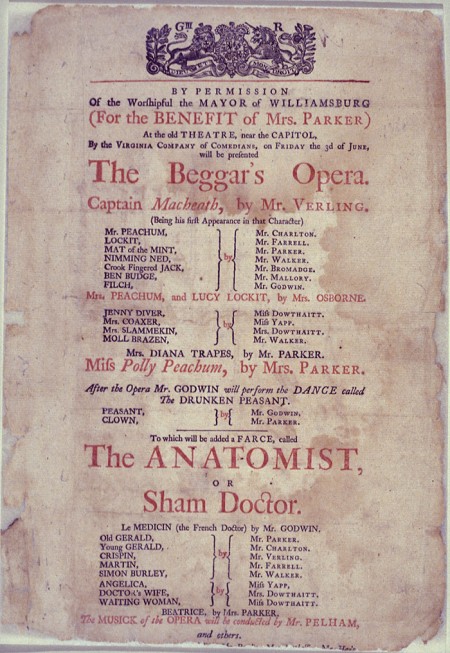Sources
Decatur, Stephen Jr. The Private Affairs of George Washington, from the Records and Accounts of Tobias Lear, Esquire, his Secretary. Boston: Houghton Mifflin Company, 1933. Print.
Johnson, Odai. "Jefferson and The Colonial American Stage." The Virginia Museum of HIstory and Biography 108.2 (200): 139-54. JSTOR. Web.
McGinley, Kevin J. "The 1757 College of Philadelphia Production of Alfred: A Masque - Some New Observations." Huntington Library Quarterly 77.1 (2014): 37-58. JSTOR. Web.
Thompson, Mary V. ""Plays Owned and Attended by George Washington and Other Members of His Household, 1751 - 1797." (2015): n. pag. Print.
Wolf, Edwin, 2nd. "Colonial American Playbills." The Pennslyvania Magazine of History and Biography 97.1 (1973): 99-106. JSTOR. Web.



















